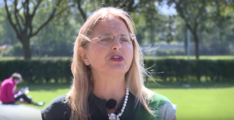December 2015
INDR editorial, December 2015

By Ask Vest Christiansen and John Gleaves
The INDR has been and remains a network of researchers focused on the complex doping phenomenon. Yet, much of what we research is shaped by anti-doping administrators. For this newsletter, we invited Michael Ask, CEO of Anti Doping Denmark, to engage in a dialogue with Co-Directors Ask Vest Christiansen and John Gleaves about how each of us envisions the ideal relationship between academic research and anti-doping organizations. This newsletter is part of an ongoing effort to encourage diverse perspectives and to provoke critical thinking about doping. We hope the resulting commentaries spark further conversation by our members and anti-doping administrators.
Videos from the conference

Besides the two commentaries on increased dialogue between NADOs and academics from CEO Michael Ask and John Gleaves & Ask Vest Christiansen, respectively, this Newsletter also contains new footage from the INDR conference in August 2015. Take a look at our website,www.doping.au.dk, and you will find short conference testimonials from Professor Letizia Paoli, Professor Ivan Waddington, Professor Torbjörn Tännsjö, Dr. Werner Pitsch and Professor Verner Møller. Watch and share with your network – they give a good impression of some of the issues we work with. We thank all five for their participation and insightful comments. You can also find the video on YouTube by following this link.
INDR commentary, Michael Ask

INDR December 2015 Commentary by Michael Ask, CEO Anti Doping Denmark.
INDR managers John Gleaves and Ask Vest Christiansen asked Michael Ask, CEO of Anti Doping Denmark to respond to the following questions:
- What should the relationship between academics and anti-doping organizations look like?
In general, I think that both parties should and could benefit from each other. The history of anti-doping is relatively short in comparison to other research areas. Hence, the general knowledge gathered from research projects and experience can still be developed quite extensively. Also, academia and anti-doping organizations have a mutual interest when it comes to utilizing the latest knowledge within the field of anti-doping. Anti-organizations should be open and transparent towards academia and share some of the challenges we have, especially regarding scientific-based knowledge about what works and what does not, in our efforts to have as clean and fair sport as possible. At the same time, academia should listen to and respect the experience gathered through practical experience within anti-doping organizations. It seems to me that some researchers neglect to cooperate with anti-doping organizations before or during their work. This is surprising to me, because I am convinced that the quality of research projects would rise if they did so. I have seen some examples of research projects, where the conclusions are based on very little empirical data, and where anti-doping organizations haven’t been heard. In such cases there is a risk of ending up with very loosely based or even false conclusions.
INDR commentary, Ask Vest Christiansen and John Gleaves


INDR December 2015 Commentary by John Gleaves and Ask Vest Christiansen.
Michael Ask, CEO of Anti Doping Denmark asked INDR managers John Gleaves and Ask Vest Christiansen to respond to the following questions:
- What should the relationship between academics and anti-doping organizations look like?
We would like to start out with a bird’s eye view perspective on that question: What are the roles of academics in the first place?
More than just repositories of knowledge, academics have an obligation to also forge new paths of discovery. As the boundary between what we know and what we still do not know expands, academics are not required to ask “what applied value does this discovery have.” Galileo’s curiosity in the time it took a chandelier to swing, measured only by his heartbeat, was not intended to help create modern timepieces, though it did through the discovery of the tautochrone nature of a pendulum. It was simple curiosity driven by unanswered questions and the human desire to know.
New INDR Members
The INDR continues to expand its membership base. We now have 58 members of the network from Asia, Australia, Europe and North America. In this newsletter we would like to welcome:
- Jesper Andreasson, Linnaeus University, Sweden
- Matt Englar-Carlson, California State University Fullerton, USA